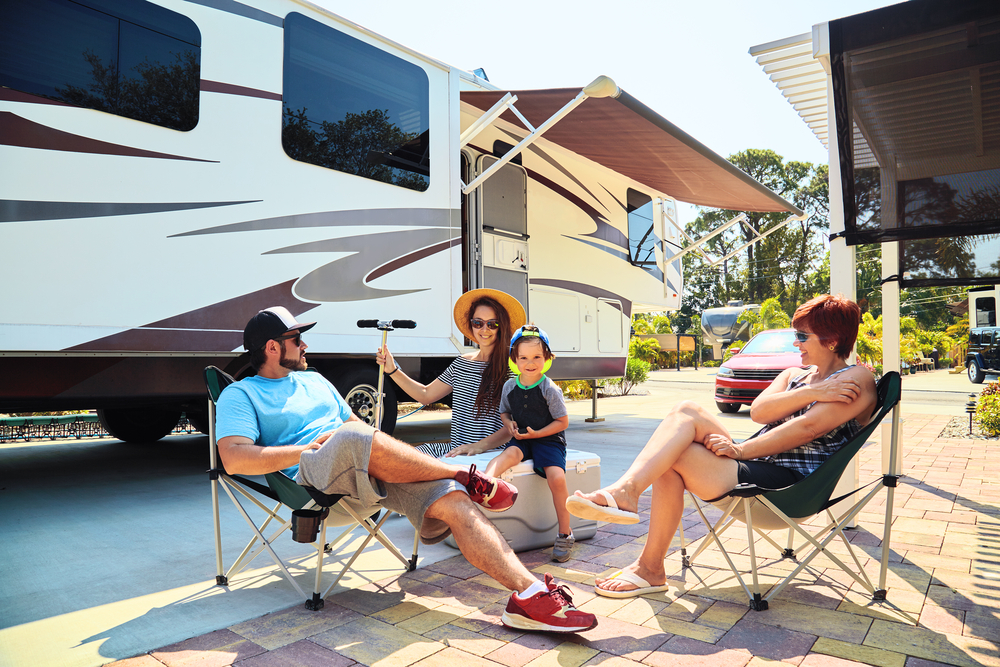
Going On A Road Trip This Spring? Make Sure Your RV Is Properly Insured With These
Tuesday, May 1, 2018
The weather is clearing, and the roads are drying up. It’s time to pull the cover off the RV and get it ready for the first road trip of the season. Before you stock up on everyone’s favorite snacks and kick the tires, you need to make sure the insurance for your RV is up-to-date. Pull out your policy and make sure nothing is missing. Remember, laws are ever changing. You don’t want to find out your insurance is lacking after an incident occurs.
Know the RV’s Vehicle Class
One of the first things you want to know is you are able to drive the RV in question. There are three primary classes of RVs. In certain states, RVs require special licenses to operate.
- Class A -These are the largest RVs on the road. Includes luxury coaches up to 75 feet long. You may need a commercial license, a non-commercial driver’s license, or at least an endorsement on your regular license.
- Class B -Next come the smallest RVs on the road. They are cargo van or camper vans type. They range in size from 16-21 feet in length. Used for short trips. These generally all fall under the 26,000 lb. threshold for having to obtain a special
- Class C -Finally, there is the mid-sized They resemble smaller Class A motorhomes often part of a fifth wheel assembly. Size and length would also decide whether you need a special license.
Insurance to Consider
Just because you have an auto policy for the truck that is pulling that fifth wheel does not mean that you automatically have coverage for whatever you are towing. RV insurance is separate for the trailer as well as the full-size motor coach. The difference is that for a trailer, in some states RV insurance is optional. For the full-size RV, insurance is mandatory.
Coverage is similar to car insurance, but you will quickly find that coverage amount will differ.
The basics:
- Property Damage -Required by all states, just like auto insurance. Pays for damages you cause to another person’s property.
- Bodily Injury -Also required as part of the minim amount of liability insurance. Pays for injuries caused to the other person.
- Collison – OTC (other-than-collision) You determine limits. This is for damages done to your vehicle, theft, and vandalism.
- Medical Payments -Pays for injuries to those who were in your vehicle. It does not matter who is at fault.
- Uninsured Motorist -In the event of an accident where the other party does not carry any or enough insurance to cover your damages and injuries.
The additions:
- Personal Property -A standard RV policy will cover the vehicle, but not its contents.
- Vacation Liability -Pays for bodily injury or property damage when your RV is used as a vacation residence.
- Travel Expense -Should your RV break down and you need to stay in a hotel or need a rental.
- Full-time Coverage -This insurance is if you use your RV as your primary residence. It acts as a homeowner’s policy would.
Common Mistakes About RV Insurance
Purchasing RV insurance is no different than shopping for an auto or a homeowner’s policy. You talk with an agent, go over coverage options, and select a policy that will prove good coverage for the lowest cost. But be aware of these common mistakes.
Thinking your car insurance covers you. -Your car insurance policy will not cover your RV. RV insurance is defferent and, in most cases, required by law.
Overlooking discounts. -Check with your auto insurance carrier or your homeowner or renters insurance agent. If they offer RV insurance, often you can obtain a sizeable discount by bundling the two policies. However, it would benefit you to shop around for a policy that offers you good coverage along with a low price.
Not having enough coverage. -An RV is like a second home. Having the minimum coverage could leave you stranded across the country if you were to experience an incident. Be sure you have adequate coverage.
To learn more about which type of insurance is good for you and your RV, contact our team at Protective Agency at (877) 739-9367. Our licensed insurance agents will be happy to answer any questions you have.
